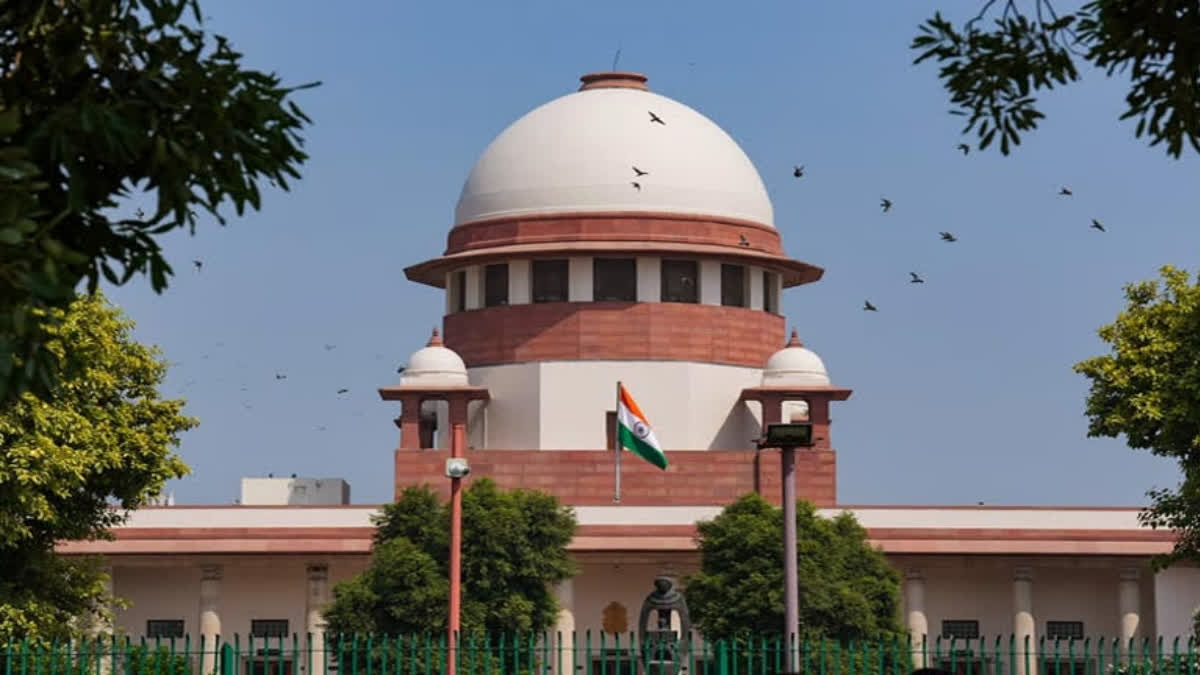New Delhi:A seven-judge bench of the Supreme Court Thursday reserved its verdict on reconsideration of its 1998 judgment which held that MPs and MLAs enjoy immunity from prosecution for taking a bribe to make a speech or vote in legislature.
Solicitor General Tushar Mehta, representing the Centre, submitted before a seven-judge bench headed by Chief Justice of India D Y Chandrachud that bribery can never be a subject matter of immunity. Mehta emphasized that it is nobody's case that there should not be privilege or immunity, and the performance of legislative duty fearlessly is the object of the provisions. He said the only question is whether bribery should be covered by this privilege or immunity.
Mehta urged the court to not go into the immunity aspect under Article 105 of the Constitution and stressed that the offence of bribery is complete when a bribe is given and accepted by the lawmaker and it can be tackled under the Prevention of Corruption Act. Mehta said there can be perhaps one more angle from which this court considers whether bribery can be protected by immunity or privilege and, referring to the 1998 judgment, added that neither majority nor minority examines the issue from this perspective.
Mehta said the short question, on which the present reference is based, is whether the offence of bribery is complete outside the House. “If it is, this court does not need to go into the question of immunity,” he said. The bench orally observed the place where offence is completed and whether it is antecedent or subsequent to speech or vote should not matter, and further queried, suppose an agreement to pay bribe is arrived at within House itself.
Attorney General R Venkataramani, also representing the Centre, said it is either speech or conduct in relation to manifold functions of the legislature where elected representatives participate, that stands protected. The AG said wherever this immunity is claimed, the inquiry will be whether speech or vote is in relation to manifold functions discharged at the legislature, and any conduct other than conduct related to legislative function will fall outside of this.
The AG said the elected representative must be free to perform legislative functions without being impaired or exposed to undue exertions and coercion. He added that at the same time, the elected representative’s office shall not be so exercised so as to dilute the trust and its importance and “we are looking at how to balance these”.
The seven-judge constitution bench headed by CJI reserved the verdict after hearing arguments from senior advocates, which included the AG and Solicitor General. On Wednesday, the Supreme Court said it will examine whether the immunity granted to lawmakers (MPs/MLAs) is available if there was criminality attached to their acts. However, the apex court said it will restrict itself to the question of re-examining the question of privileges only so far as the offence of bribery is concerned.
The bench – also comprising justices A S Bopanna, M M Sundresh, P S Narasimha, J B Pardiwala, Sanjay Kumar and Manoj Misra – said it was held that irrespective of the criminality, immunity is available to the lawmakers, while it referred to the 1998 judgment. The bench said it should not be entering on issues which strictly don’t arise before it, and “we will not revisit except on the issue of bribery….”.
